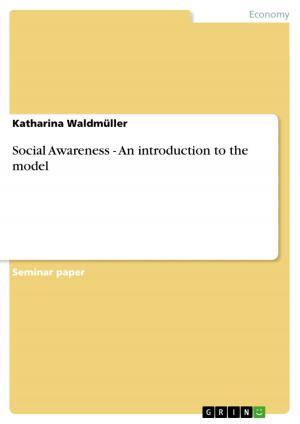Concerning Alexander Wendt's constructivism, identity and change
Nonfiction, Social & Cultural Studies, Political Science, International, International Relations| Author: | Michael Hofmann | ISBN: | 9783638740081 |
| Publisher: | GRIN Publishing | Publication: | June 13, 2007 |
| Imprint: | GRIN Publishing | Language: | English |
| Author: | Michael Hofmann |
| ISBN: | 9783638740081 |
| Publisher: | GRIN Publishing |
| Publication: | June 13, 2007 |
| Imprint: | GRIN Publishing |
| Language: | English |
Essay from the year 2005 in the subject Politics - International Politics - General and Theories, grade: 71 (UK system), University of Kent, 11 entries in the bibliography, language: English, abstract: This paper argues that Wendt's approach, by taking states' domestic identities as given, is not able to explain changes in structure adequately. Particularly, Wendt's assumption does not provide sufficient insights into processes of identity (trans-) formation. Wendt's approach is lacking a theory of action. He is e.g. not able to explain the reasons and processes that trigger the change of role-definitions (identities) at the state level. In order to develop the above mentioned thesis, Wendt's concept of change will be shortly outlined by exactly identifying when change in identity, and thus change in structure is possible. In the main part, it will be shown why exogenously given 'corporate identity' constitutes the wrong ontological approach to explain identity formation sufficiently. Finally, in the last part of the paper, a summary will cover the findings of the analysis.
Essay from the year 2005 in the subject Politics - International Politics - General and Theories, grade: 71 (UK system), University of Kent, 11 entries in the bibliography, language: English, abstract: This paper argues that Wendt's approach, by taking states' domestic identities as given, is not able to explain changes in structure adequately. Particularly, Wendt's assumption does not provide sufficient insights into processes of identity (trans-) formation. Wendt's approach is lacking a theory of action. He is e.g. not able to explain the reasons and processes that trigger the change of role-definitions (identities) at the state level. In order to develop the above mentioned thesis, Wendt's concept of change will be shortly outlined by exactly identifying when change in identity, and thus change in structure is possible. In the main part, it will be shown why exogenously given 'corporate identity' constitutes the wrong ontological approach to explain identity formation sufficiently. Finally, in the last part of the paper, a summary will cover the findings of the analysis.















